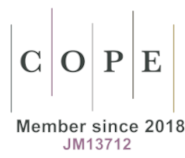Bolivia under the Left-Wing Presidency of Evo Morales—Indigenous People and the End of Postcolonialism?
DOI:
https://doi.org/10.2478/ipcj-2013-0003Keywords:
Bolivia, postcolonialism, indigenous people, democracy, socioeconomic developmentAbstract
This article explores the development in Bolivia under president Evo Morales, through a critical postcolonial approach. From a traditional liberal perspective, this article concludes that the liberal democratic system under Morales has not been deepening, though certain new participatory aspects of democracy, including socio-economic reforms have been carried out. In contrast, this article analyses to what extent the presidency of Evo Morales may be seen as the end of the postcolonialism, and the beginning of a new era in which Bolivia’s indigenous people finally have been incorporated into the forward development of a multi-ethnic society. By analysing issues such as time, nation, land, space, globalization and language, the conclusion is that the new constitution marks a fresh beginning, one beyond the colonial and postcolonial eras, for indigenous groups, but it will not bring back the old indigenous societies as was dominating the territory of today’s modern state.
Downloads
References
Anria, Santia. “Bolivia’s MAS: Between Party and Movement.” Latin Americans Left Turns: Politics, Policies & Trajectories of Changes. Eds. Maxwell A. Cameron, and Erik Hershberg. Boulder, London, 2010.
Google Scholar
Cameron, Maxwell A., and Kenneth E. Sharpe. “Andean Left Turns: Constituent Power under Constitution Making.” Latin Americans Left Turns: Politics, Policies & Trajectories of Changes. Eds. Maxwell A. Cameron, and Erik Hershberg. Boulder, London, 2010.
Google Scholar
Castañeda, Jorge G. Utopia Unarmed: the Latin American Left after the Cold War, New York: Knopf, 1993.
Google Scholar
Castañeda, Jorge G., and Manuel A. Morales, “The Left Turn Continues.” Brown Journal of World Affairs. Vol. 13 No. 2. (2008): 201-210.
Google Scholar
Chakrabarty, Dipesh. Provincializing Europe: Postcolonial Thought and Historical Difference. Princeton: Princeton University Press, 2000.
Google Scholar
Clifford, James. “Diasporas.” Cultural Anthropology. Vol. 9 No. 3.(1994): 302-338. Constitución Política del Estado Pluranacional de Bolivia, 2009. http://pdba.georgetown.edu/Constitutions/Bolivia/bolivia09.html
Google Scholar
Dahl, Robert A. Polyarchy: Participation and Opposition. New Haven; London: Yale University Press, 1971.
Google Scholar
De la FuenteJeria, José “El DifícilParto de otraDemocracia: La Asamblea Constituyente de Bolivia.” Latin American Research Review. Special Issue. (2010) 5-26.
Google Scholar
Freedom House. “Freedom in the World: Signature Reports, Bolivia” (2005-2012). http://www.freedomhouse.org/country/bolivia (2012-08-23).
Google Scholar
Katz, Claudio. “Socialist Strategies in Latin America.” Monthly Review: an Independent Socialist Magazine. Vol. 59 No. 4. (2007): 25-42.
Google Scholar
Keen, Benjamin. A History of Latin America. Houghton Mifflin, USA, 1991.
Google Scholar
Klein, Herbert S.A Concise History of Bolivia. Cambridge: Cambridge University Press, 2011.
Google Scholar
Kohl, Benjamin. “Bolivia under Morales: A Work in Progress.” Latin American Perspective. Vol. 37 No. 3. (2010): 107-122.
Google Scholar
Kohl, Benjamin, and Rosalind Bresnahan. “Bolivia under Morales: Consolidating Power, Initiating Decolonization.” Latin American Perspectives. Vol. 37 No. 3. (2010): 5-17.
Google Scholar
Krishna, Sankaran. Globalization & Postcolonialism: Hegemony and Resistance in the Twenty-first Century. Plymouth: Rowman & Littlefield Publishers, INC. 2009.
Google Scholar
Lupien, Pascal. “The Incorporation of Indigenous Concepts of plurinationality into the New Constitutions of Ecuador and Bolivia.” Democratization. Vol. 18 No. 3. (2011): 774-796.
Google Scholar
McClintock, Anne. “The Angel of Progress: Pitfalls of the Term ‘Postcolonialism.” Social Text. No. 31/32. Third World and Postcolonial Issues. (1992): 84-98.
Google Scholar
McLeod, John. Beginning Postcolonialism (second edition). Manchester: Manchester University Press, 2010.
Google Scholar
Montambeault, Francoise. “Democratizing Local Governance? The Ley de Participación Popular and the Social Construction of Citizenship in Bolivia.” Journal of Civil Society. Vol. 4 No. 2. (2011): 113-129.
Google Scholar
Postero, Nancy. “Morales’s MAS Government: Building Indigenous Popular Hegemony in Bolivia.” Latin American Perspectives. Vol. 37 No. 3. (2010a): 18-34.
Google Scholar
Postero, Nancy. “The Struggle to Create a Radical Democracy in Bolivia.” Latin American Research Review. Special Issue. (2010b): 59-78.
Google Scholar
Regalsky, Pablo. “Political Processes and Reconfiguration of the State in Bolivia.” Latin American Perspective. Vol. 37 No. 3. (2010): 35-50.
Google Scholar
Rocabado, Franco G. “Transformaciones constitutucionales en Bolivia: Estado indígena y conflictosregionals.” Colomiba Internacional. No. 71. (2010): 151-188.
Google Scholar
Said, Edward W. Orientalism. Vintage Books Edition, 1978.
Google Scholar
Young, Robert C. Postcolonialism: a Very Short Introduction. Oxford: Oxford University Press, 2003.
Google Scholar
Valdivia, Gabriela. “Agrarian Capitalism and Struggles over Hegemony in the Bolivian Lowlands.” Latin American Perspectives. Vol. 37 No. 4. (2010): 67-87.
Google Scholar
Walker, Ignacio. “The Three Lefts of Latin America.” Dissident. Fall. (2008): 5-12.
Google Scholar
Downloads
Published
How to Cite
Issue
Section
License

This work is licensed under a Creative Commons Attribution-NonCommercial-NoDerivatives 4.0 International License.

















